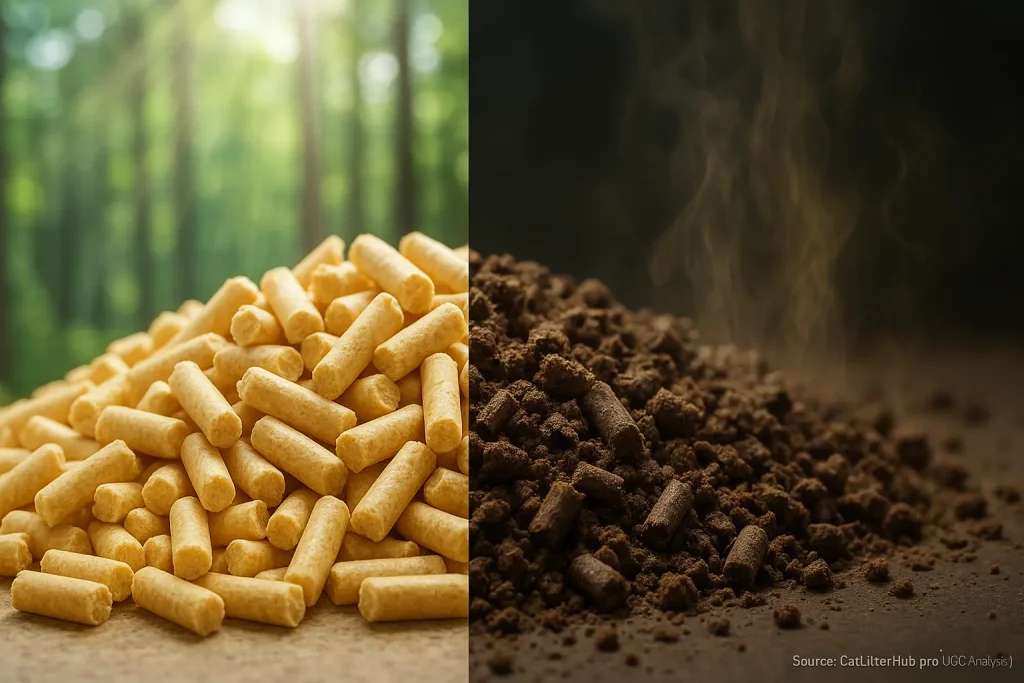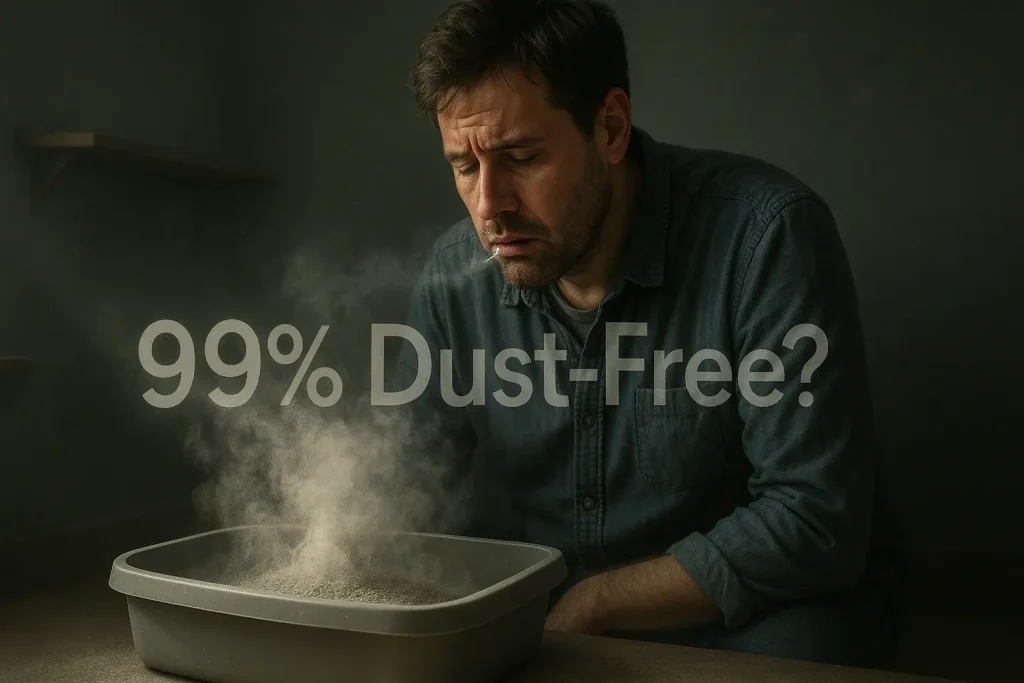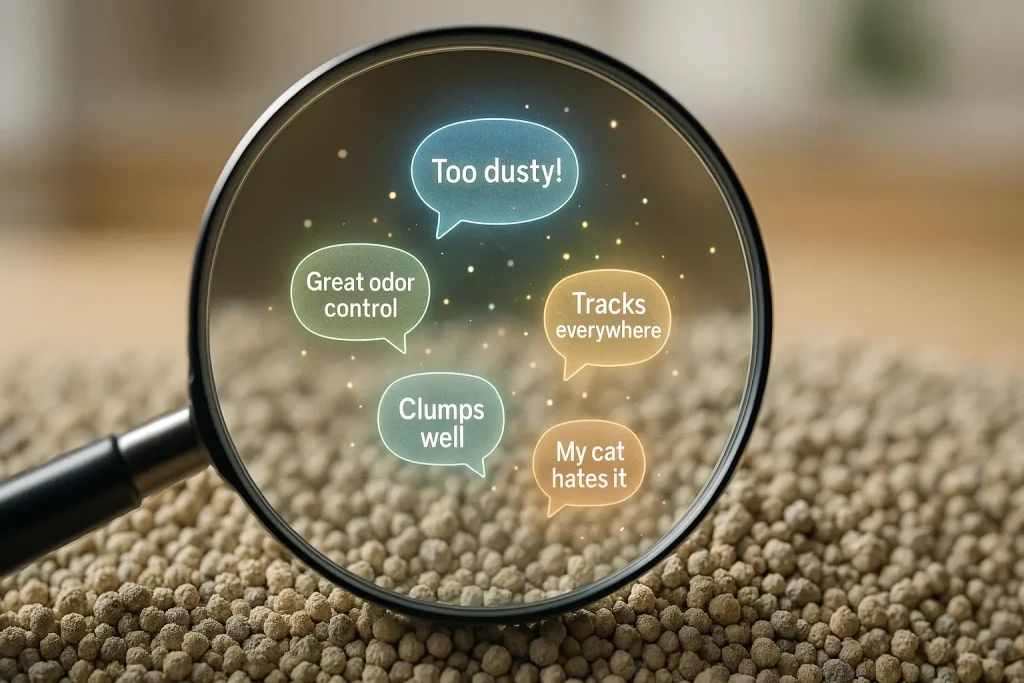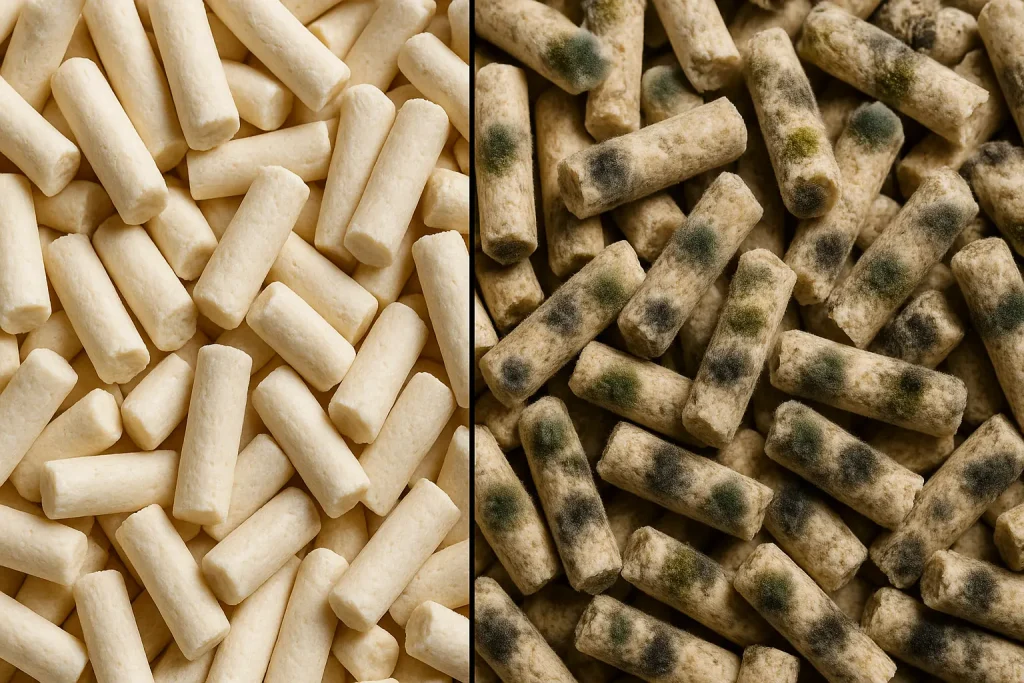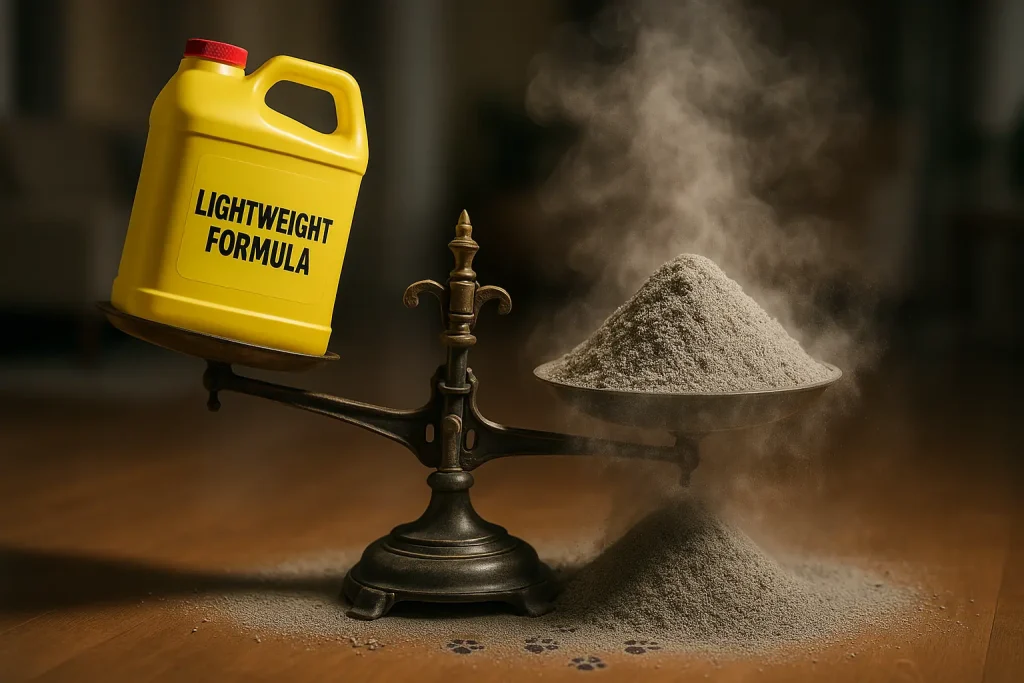The "Natural" Halo: Why We Assume It's Always Better (And Why We Shouldn't)
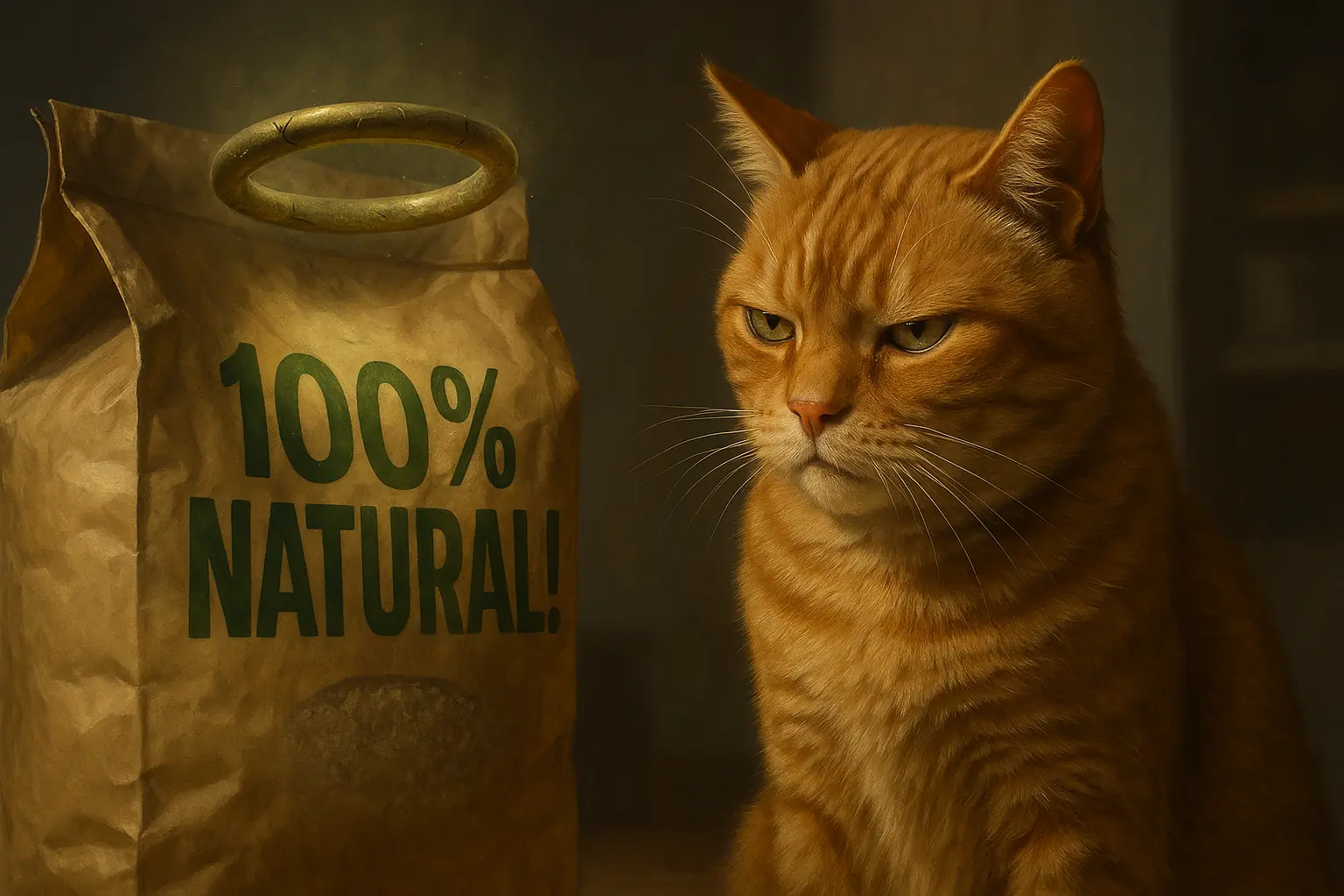
Ever feel a wave of relief choosing a "natural" cat litter? You're likely thinking you've dodged potential chemical concerns. It's an understandable reaction for caring cat owners. The marketing appeal of "natural" and "eco-friendly" is undeniably strong. However, our analysis of countless owner discussions suggests this "natural" label can sometimes create a misleading sense of automatic safety.
Many cat parents gravitate towards natural litters. Eco-consciousness plays a part. Perceived safety for their beloved pets is a huge driver. But here is a key finding our deep dive into thousands of user reviews has uncovered: "natural" does not always equate to "problem-free." In fact, some "natural" options present their own unique set of challenges, issues owners rarely anticipate from a product marketed with a wholesome image.
So, Cat Litter Hub is peeling back that green-washed label. What are users really reporting about those corn, wheat, wood, or paper-based litters? We are investigating the common problems and hidden risks frequently surfacing in user-generated content. Prepare for some potentially unexpected insights, drawn directly from the collective experience of fellow cat owners, moving far beyond mere marketing claims.
Bugs in the Bag? The Unwanted Guests in Some Plant-Based Litters
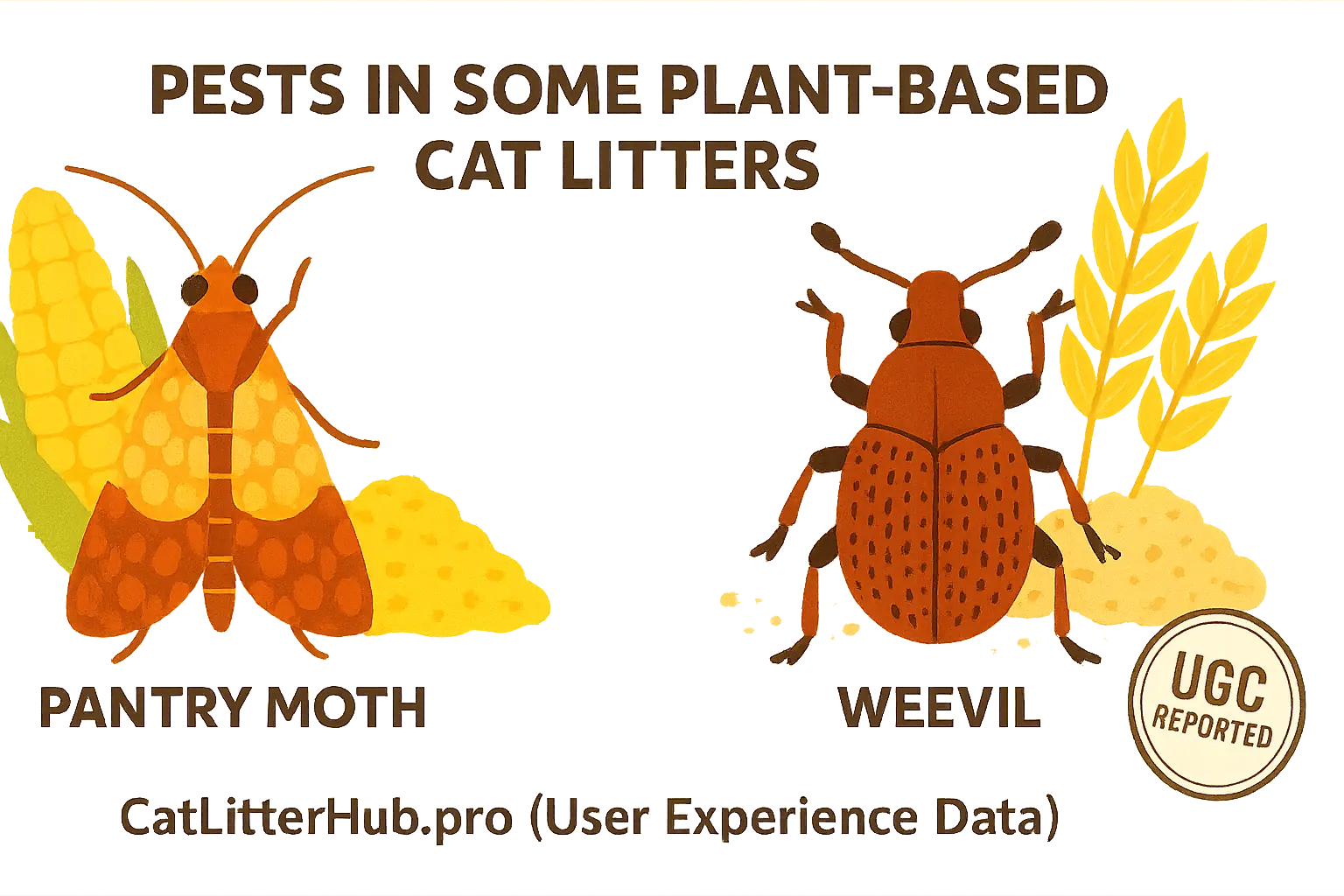
Imagine pouring new 'natural' corn litter; tiny moths emerge. Or you find wriggling larvae. A nightmare for some owners. This is a real-life horror story, user reports confirm. Certain plant-based litters, users find, unfortunately attract common pantry pests, these uninvited guests.
A surprising number of owners have shared stories about these unwanted guests. The pattern in user discussions shows them finding pantry moths or weevils in corn and wheat litters. Even some grass-seed litters suffer. Pests appear in new bags or previously opened ones. Users often suspect poor manufacturer storage or the litter's inherent food appeal to pests.
The yuck factor? Immense. Beyond disgust, users worry about pests spreading to kitchen pantries. A 'natural' choice can become a household infestation headache. Some savvy owners now freeze new plant-based litter bags for 48 hours. Others immediately transfer litter to completely airtight, pest-proof containers. These steps, a clear sign of the issue's reach, prevent wider infestations for users.
The Moldy Truth: When "Natural" Tofu and Other Litters Go Bad
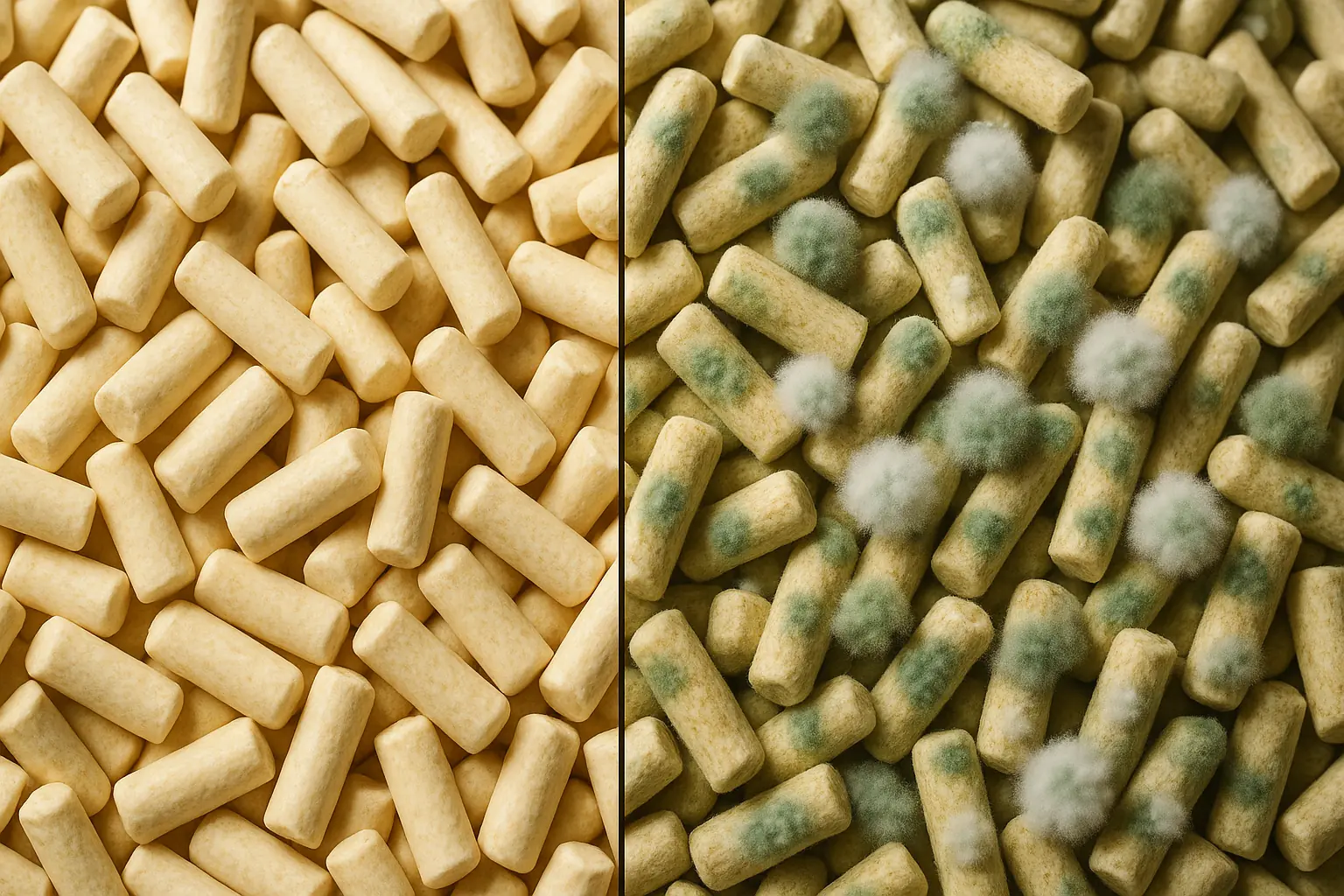
You selected tofu litter for its green credentials. Perhaps its flushable convenience appealed. Then you spot the unwelcome guest. Fuzzy, discolored patches appear. Mold. In your cat's supposedly clean space. This scenario is a genuine concern voiced by users of some natural, food-based litters. Our analysis of user feedback confirms this problem.
Cat owners, particularly those in humid climates, share these troubling experiences. Some users who scoop less frequently also report issues. They find tofu litters can be surprisingly prone to mold growth. A recurring theme in user discussions involves finding mold even in poorly sealed new bags. These discoveries understandably spark user concerns about potential health implications for their cats. Respiratory issues or problems from ingestion are common worries. People also express unease about their own health from airborne spores.
The irony here? Tofu litter often boasts 'food-grade' qualities. This very characteristic, however, can make it an attractive environment for mold spores if moisture enters. Many cat owners have discovered this downside. Their collective wisdom emphasizes a critical point. Airtight storage for any unused tofu litter is absolutely non-negotiable. Some experienced users even suggest adding a food-safe desiccant pack to the storage container. (Always keep desiccants safely away from cats). More frequent full litter box changes in damp conditions are another user-recommended strategy to combat mold. Users warn: prevention is key.
"Natural" Allergens: When Pine, Cedar, or Plant Fibers Irritate Your Cat
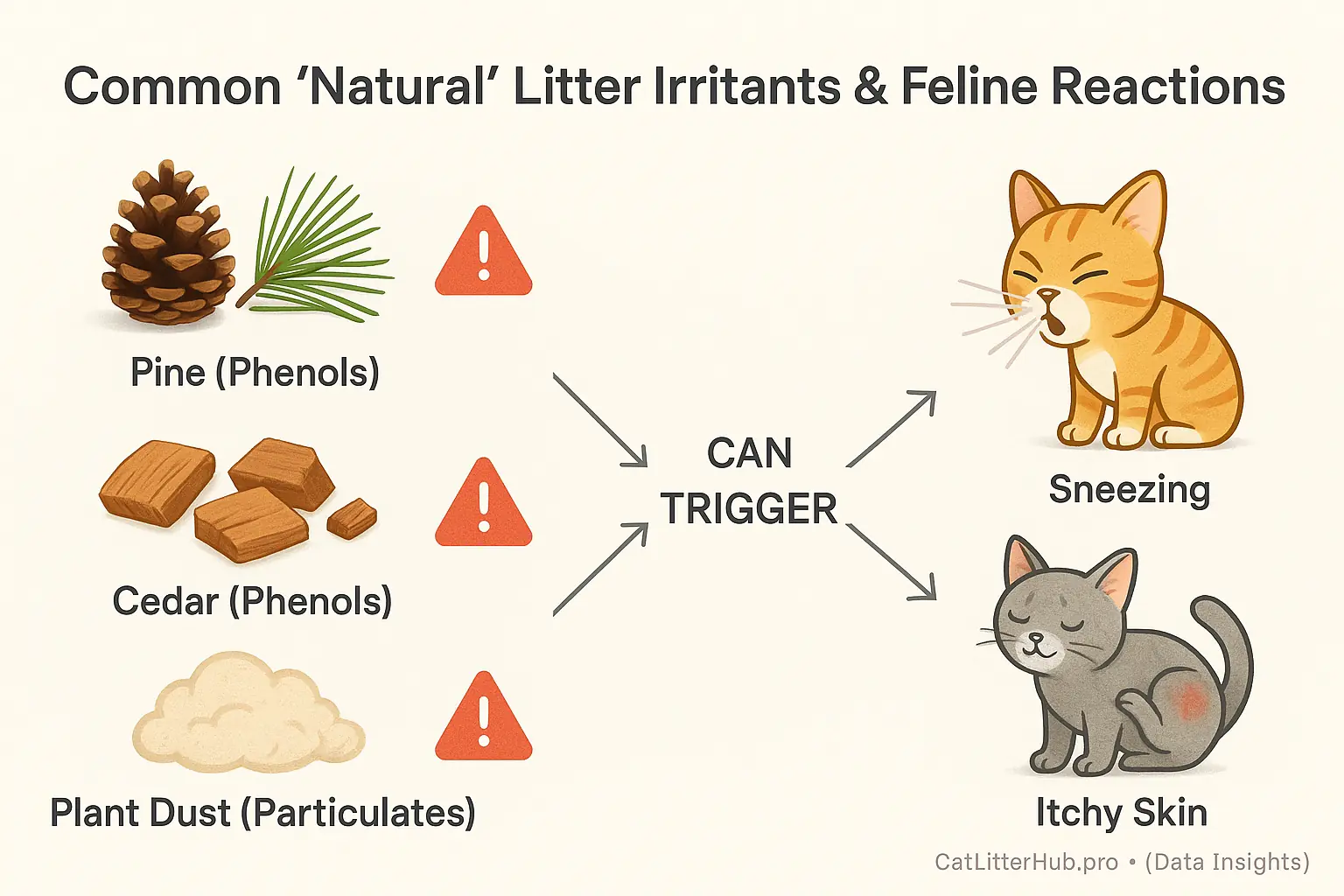
Many cat owners select 'natural' litters. Pine or cedar scents seem gentler. But what if your cat starts sneezing? Or develops itchy skin after a litter change? The surprising truth from user experiences: some natural ingredients can irritate sensitive felines. Mother Nature's components are not always benign.
User forums frequently detail these issues. One owner might share, "My cat was perfectly fine until that new pine pellet litter; now constant scratching occurs." Another reports, "The cedar chips smelled wonderful to me, but my cat began wheezing." These are not isolated incidents. Our analysis of countless reviews indicates some cats genuinely react to strong aromatic oils, specifically phenols, in certain woods. Fine dust from some plant fiber litters also appears problematic for a segment of cats.
The collective experience of seasoned cat parents offers a clear takeaway. 'Natural' does not automatically mean 'allergy-proof' for every cat. Sensitivity is highly individual. Here is a practical point many owners discover: 'unscented natural' options often prove much better tolerated. Litters made from less aromatic woods, if available, also tend to cause fewer reported issues than pungent pine or cedar. It becomes a quest for the right natural litter, not just any natural litter.
The Aflatoxin Question & Other Hidden Risks in Grain-Based Litters: A Cautious Look
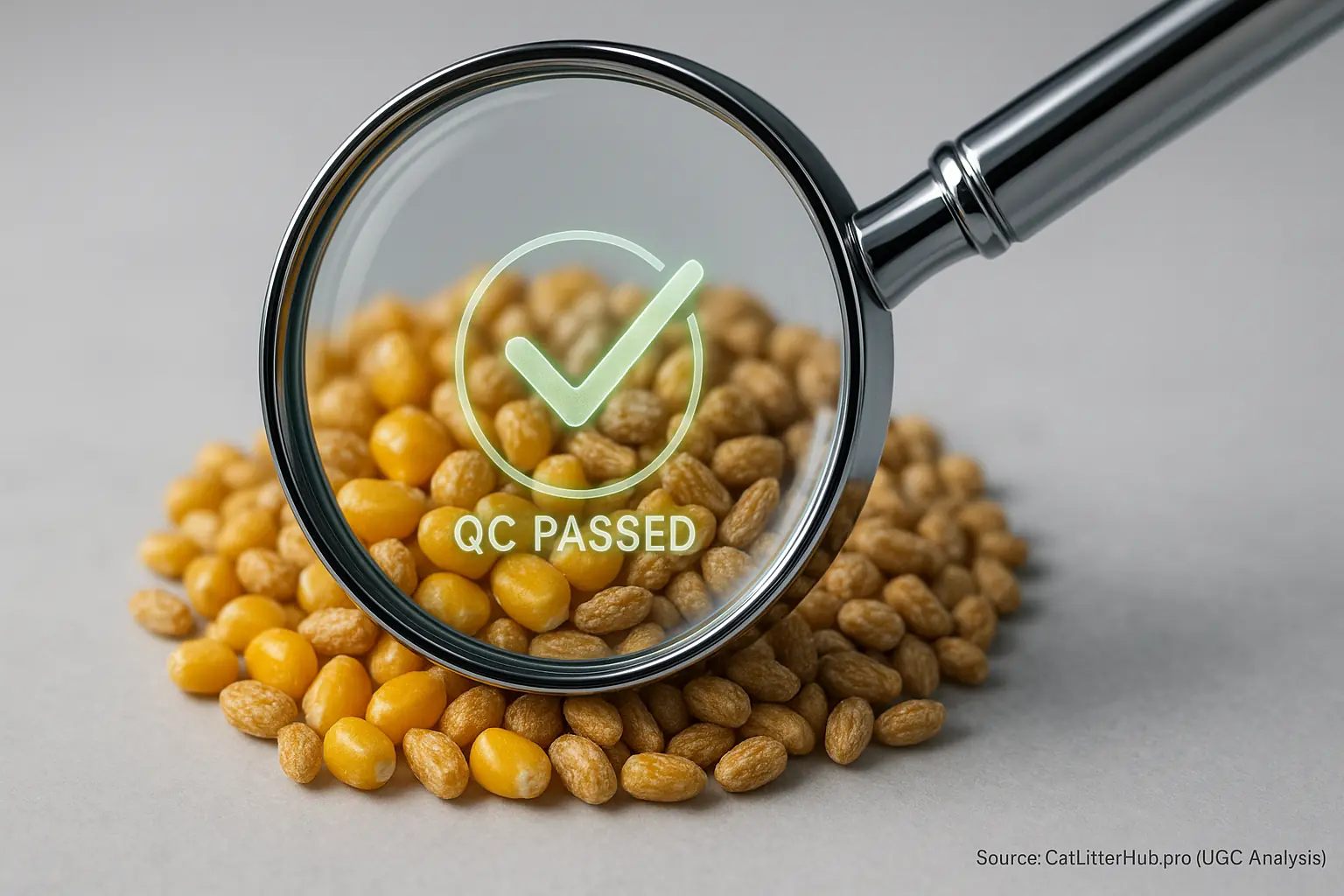
Beyond bugs and direct allergies, a more subtle concern exists. Some informed owners and veterinarians occasionally raise this concern regarding grain-based litters. Corn litters and wheat litters are common examples. The concern involves potential mycotoxins. Specifically, aflatoxins. Sounds unsettling, right? Aflatoxins are harmful substances produced by certain molds that can grow on grains like corn or wheat before or after processing.
Now, let's be clear. Widespread user reports of cats getting sick directly from aflatoxins in litter are extremely rare. Cat Litter Hub's extensive review analysis confirms this scarcity. Reputable manufacturers of grain-based litters typically have quality control measures. These measures aim to minimize this risk. The potential, however, persists if grains are poorly sourced or improperly handled. Incorrect processing or damp storage conditions, either by the supplier or in your home, can elevate this theoretical risk.
What's the practical takeaway for you? This issue does not warrant daily panic. It is, however, another reason for careful litter selection. Choosing established brands for grain-based litters matters significantly. These brands generally invest more in quality control. Ensuring your corn or wheat litter stays bone-dry is also crucial. Many users, drawing from experience with other organic litters like tofu, recommend an airtight container. This smart practice prevents many types of fungal growth, not just for aflatoxin concerns, contributing to overall litter box hygiene.
Redefining "Safe & Natural": It's About Your Cat's Reality, Not Just Labels
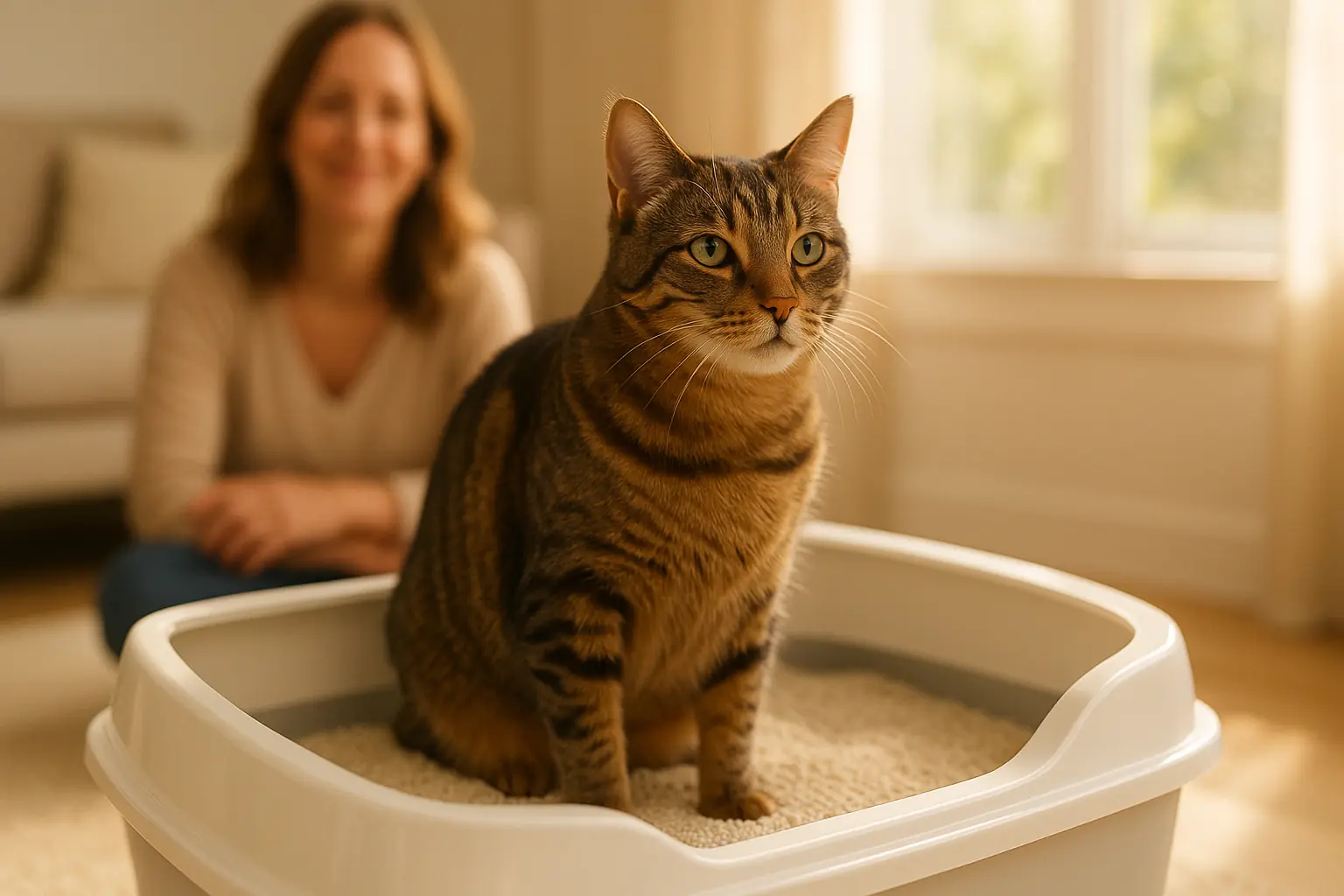
Is 'natural' cat litter always safer? Is it always better? Thousands of real owner experiences suggest a complex answer. That 'natural' label on the bag offers a starting point. It is not a guarantee of a perfect, problem-free experience for your unique cat.
What do owners truly seek? Our analysis of their feedback reveals clear priorities. 'Safe and natural' means low dust. It means no harsh chemical smells bothering people or pets. Owners want zero surprise bug infestations. No scary mold. Critically, it means a litter their cat uses without issue. This is the lived reality. It is about their home.
The big takeaway here is straightforward. Do not trust marketing buzzwords. Dive into what other cat parents report. Our deep dive into user feedback uncovers a practical truth: your best tool for navigating the 'natural' litter maze is the community's collective wisdom. Look for patterns in reviews. Pay close attention if your cat has known sensitivities. A litter celebrated in one household can cause significant problems in another.
The 'safest' and 'most natural' litter keeps your cat healthy. It keeps your cat happy. It ensures consistent box use. This ideal litter also meets your needs for cleanliness and simple maintenance. Finding this match means looking beyond packaging claims. It requires listening to the real experts. Other cat owners.
Related Insight: Pine & Cedar Resins in Wood Litter: Natural Scent or Cat Allergen? (UGC Sensitivity Reports)
Wood litters often attract owners with their natural scent. Pine. Cedar. Seems ideal, right? Yet, a surprising number of user reports flag sensitivities. Some cats react unexpectedly to these popular "natural" choices.
Our deep dive into community feedback uncovers a common thread. Natural resins. These compounds in pine and cedar, while giving that forest-fresh aroma, appear linked to various feline sensitivities. This discovery prompted a closer look. We will detail our findings soon.
Related Insight: Heavy Metals in Clay Cat Litter: A Real User Concern or Overblown Hype? (UGC & Science Check)
Our current discussion centers on "natural" litter myths. Yet, traditional clay litters attract significant user attention regarding safety. Cat owners frequently voice concerns online about heavy metals in these common products.
Do these bentonite risks hold up under scrutiny? We are investigating the user experiences versus scientific data on potential clay litter contaminants. A full report is coming.


